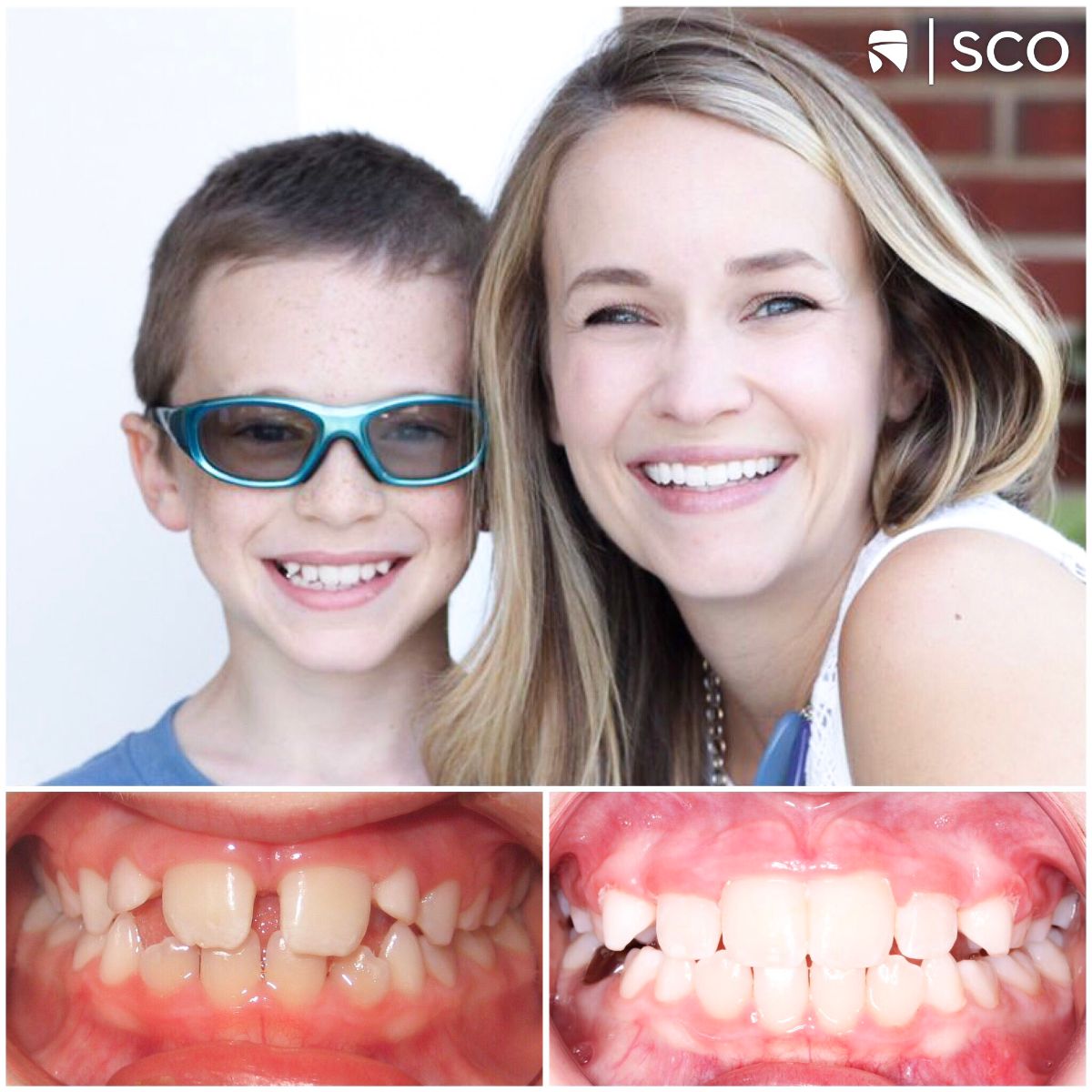The choices you make as a parent can have a big impact on your child’s smile! Part of ensuring their dental health is knowing how to identify bad oral habits that can affect your child’s smile, and understanding when to address it. Kids commonly pick up habits that are easy to overlook, but some of these can affect the look, feel, or function of the teeth and jaw. While it can be tempting to ignore these bad habits, doing so can result in many different issues, including
- tooth decay
- misalignment of the teeth and jaw
- difficulty eating or chewing
- speech problems
- interrupted sleep patterns
and more! Here at Saddle Creek Orthodontics, we work with many young patients and their families. We’ve seen firsthand how certain habits can be harmful to a child’s oral health or interrupt their treatment plan. To learn more about the bad habits we encounter most often and how we can help children overcome them, keep reading below!
Thumb and finger sucking
This is one of the most common habits we see in our practice. While it’s usually limited to the infant and toddler years, it can sometimes persist into adolescence or even adulthood. This type of extended thumb or finger sucking may interfere with the development of the jaw, the shape of the mouth, and how the teeth grow.
Thumb sucking can also cause deformities to the roof of the mouth and affect the cosmetic appearance of a child’s smile. Some children may develop speech problems, particularly in pronouncing sounds like d’s and t’s. These issues can range from mild to severe, and may need special treatment to correct them, including orthodontics.

Nail biting
Whether it’s rooted in anxiety, boredom, or the need for distraction, nail-biting is far from unusual among kids and adults alike. This habit can begin early and may worsen as a child gets older. As harmless as it seems, nail-biting can increase the risk of chipped enamel and cracked teeth. The latter can also lead to irritation of the soft tissues inside the teeth.
This particular habit can be harmful in another way—it makes it easy to transfer bacteria from a child’s hands to their mouth. If the last year has taught us anything, it’s how germy our hands can be! It’s more important now than ever to curb any practice that can increase the risk of infection. That includes chewing on the nails and cuticles.
Teeth grinding
Teeth grinding, or bruxism, often happens subconsciously. While most kids will eventually outgrow this habit, it can cause problems while it continues. The grinding action can wear down the enamel of the teeth, damaging them and possibly leading to sleep disruptions. This can also lead to physical symptoms like headaches, earaches, and jaw pain.
There are many possible causes for teeth grinding, but we frequently see it in children who have problems with their bite and alignment. For these types of cases, orthodontic treatment is often very beneficial! If you have a child struggling with the effects of bruxism, a complimentary consultation with Dr. Fagala could give you the answers (and solutions) you’ve been looking for.
Poor oral hygiene
Good dental hygiene is about more than a quick brush in the morning or floss before bed. Even little things can make a difference! For toddlers, we recommend toothbrushes that have easy-to-grip handles and soft bristles. Older children who are more coordinated can upgrade to adult toothbrushes once they have the necessary hand strength. Soft bristles are better than firm ones, since they’re gentler on the gums. Toothbrushes should be replaced every 3-4 months, or sooner if the child has had a cold or other illness.
How kids brush is almost as important as how often they do it! Children over the age of three should brush with fluoridated toothpaste at least twice a day for two minutes each time. Flossing every night before bed will also help to remove food particles and plaque, reducing the chances of children developing cavities and tooth decay. Disclosing rinses can be a useful tool, too, especially for kids learning how to brush and floss effectively. They actually stain the plaque on a child’s teeth and help show them any spots they’ve missed when brushing.
How early orthodontic evaluations can help
It’s important for parents to help their children develop good oral habits from a young age. That includes brushing and flossing effectively, but identifying bad habits is part of maintaining a healthy mouth, too! If you’re not sure what constitutes a harmful oral habit, an early orthodontic evaluation can help. In fact, the American Association of Orthodontists recommends these initial visits for all children around the age of 7 years old!
By this age, an experienced orthodontist like Dr. Fagala will be able to assess a child’s bite, and can also observe the front-to-back and side-to-side relationships. We love early evaluations because they allow us to monitor a child’s oral development as they grow! This gives us the opportunity to catch any potential issues before they become more problematic.

Break bad oral habits with help from Saddle Creek Orthodontics
Dr. Fagala is a highly trained orthodontist who has years of experience creating beautiful smiles for Mid-South families! Along with correcting misalignments and straightening teeth, he’s able to identify any underlying oral habits in a child and advise patients on how to deal with them.
When you schedule a visit for your child in our Germantown or Collierville office, Dr. Fagala will perform a thorough examination of their mouth. He’ll also go over their medical and dental history, and discuss any concerns you may have about their dental development. If a customized treatment plan is necessary, Dr. Fagala will take into account any bad oral habits the child has and include our recommendations for eliminating them.
Does your child need some professional help breaking free from a harmful oral habit? Get in touch today and schedule a FREE consultation with our team!
Best,




